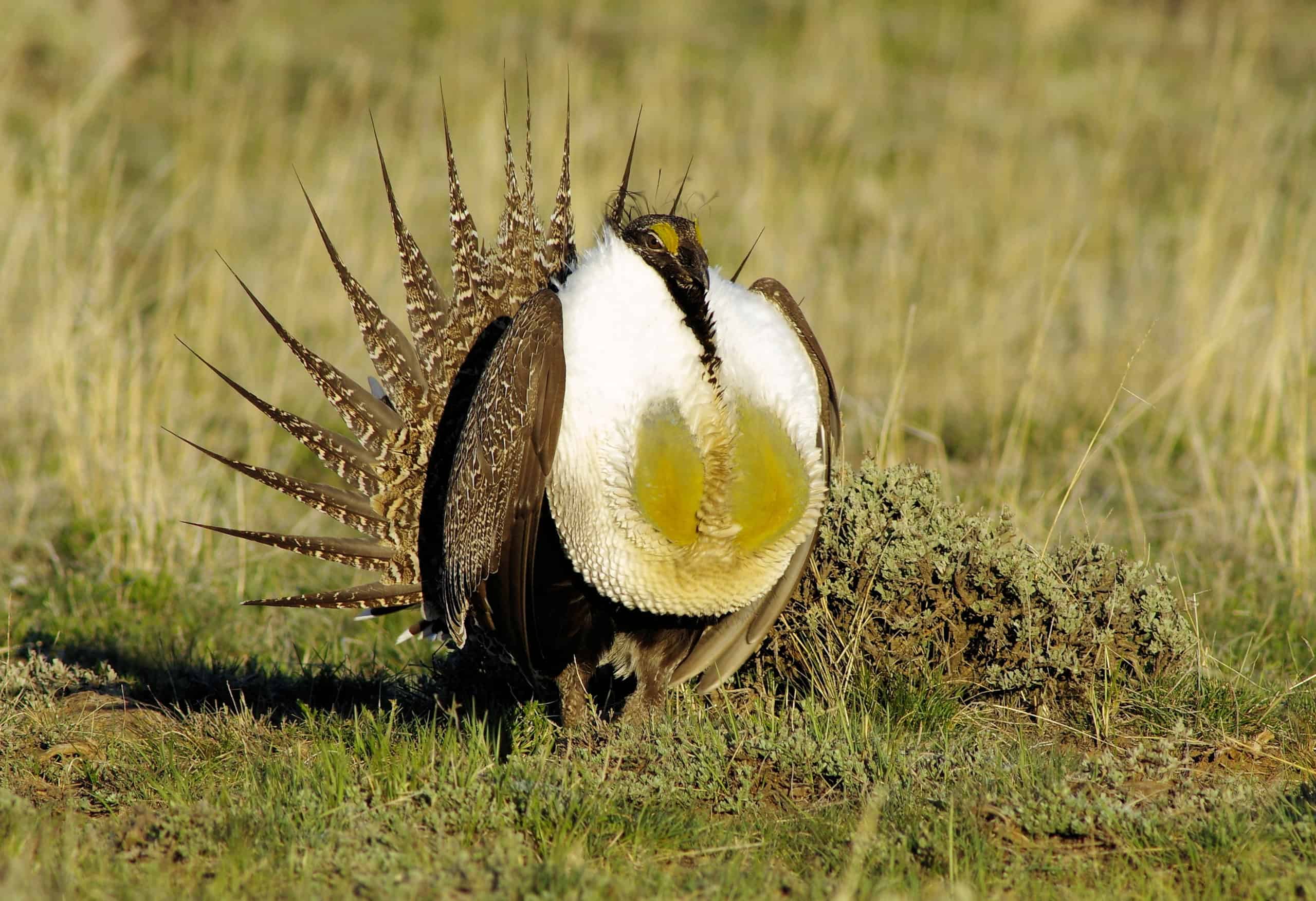© Stephen Torbit/USFWS
The annual US Congressional Appropriations Process is the primary means by which Congress states its wildlife conservation and management priorities to the nation. Every year, Congress sets the amount of funding provided for federal agencies and a variety of wildlife research, conservation and management programs – like the State and Tribal Wildlife Grants program, the USGS Cooperative Fish & Wildlife Research Units program, and the US Fish and Wildlife Service’s National Wildlife Refuge System.
In preparation for this process, The Wildlife Society engages each year with the House and Senate Appropriations subcommittees charged with setting funding for wildlife programs. You can find additional information on U.S. federal conservation programs and associated funding needs through the chart provided below, or by checking out TWS’ testimony on Fiscal Year 2024 funding for the U.S. Department of the Interior and U.S. Department of Agriculture. For information specific to funding of the U.S. Fish and Wildlife Service’s National Wildlife Refuge System, check out TWS’ Refuge System Action Center.
| Program | U.S. Senate Funding Proposals for FY 2024 | U.S. House Funding Proposals for FY 2024 | Administration Requested Funding Level for FY 2024 | TWS Requested Funding Level for FY 2024 | Enacted Funding Level for FY 2023 | Program Description |
| USGS Climate Adaptation Science Centers (CASCs) | $83.2 M | $67.1 M | $87.3 M | $87.3 M | $63.1 M |
CASCs respond to regional wildlife, ecosystems, and community-based stakeholder needs in the face of a changing climate. They also support students and early-career wildlife professionals with fellowships and training programs.
|
| USGS Cooperative Research Units (CRUs) | $29.3 M | $28.2 M | $29.0 M | $34.0 M | $28.206 M |
CRUs housed at public Universities provide fish and wildlife research and technical assistance tailored to the needs of natural resource managers in the field. They also help educate the next generation of wildlife professionals.
|
| USFWS State & Tribal Wildlife Grants | $73.8 M | $72.6 M | $76.6 M | $100.0 M | $73.81 M |
This grant program provides funds for states and tribes to conserve at-risk species before they reach the point of endangerment. Though it has proven effective, it is chronically underfunded by Congress.
|
| USFWS National Wildlife Refuge System – Operations and Maintenance | $539.2 M | $487.4 M | $624.9 M | $712.0 M | $541.56 M |
The Refuge System is the largest and most diverse network of conservation lands in the world and has a mission to protect, manage, and, where appropriate, restore native species and habitat.
|
| USFWS Ecological Services | $298.7 M | $270.4 M | $384.5 M | $384.5 M | $269.033 M |
Ecological Services administers the Endangered Species Act, working with diverse public and private partners to help identify species facing extinction and reduce threats to their populations in order to move them effectively through all steps of the listing process.
|
| USFWS Neotropical Migratory Bird Conservation Act (NMBCA) | $5.1 M | $5 M | $9.9 M | $9.9 M | $5.1 M |
NMBCA is a grant program that supports migratory bird conservation by funding population and habitat conservation projects across the Western Hemisphere.
|
| USFWS Migratory Bird Joint Ventures (MBJVs) | TBA | $17 M | $18.5 M | $18.0 M | $16.821 M |
MBJVs are locally-directed partnerships that develop and implement science-based habitat conservation strategies for all species of birds across North America.
|
| USFWS Partners for Fish and Wildlife | $65.3 M | $54.2 M | $79.7 M | $79.7 M | $60.267 M |
This program allows voluntary habitat restoration goals, aligned with identified strategic priorities, on private lands to be achieved through cost-efficient financial and technical assistance.
|
| BLM Wildlife Habitat Management | $148.9 M | TBA | $162.0 M | $162.0 M | $149.0 M |
This program supports efforts to identify, protect, conserve, and restore large landscapes that are necessary to support the long-term resilience of wildlife and plant populations.
|
| USDA – APHIS Wildlife Services: Wildlife Damage Management | $122M | $124.6 M | $123.0 M | $123.0 M | $121.957 M |
Wildlife Services provides front-line assistance to stakeholders to resolve human-wildlife conflict and protect both natural and man-made resources.
|
| USDA – APHIS Wildlife Services: Methods Development | $26.2 M | $24.9 M | $26.0 M | $27.0 M | $26.244 M |
Methods Development supports the National Wildlife Research Center, which provides Wildlife Services with the tools needed to prevent human-wildlife conflict.
|
| USDA – NIFA: Renewable Resources Extension Act (RREA) | $4.1 M | $4.1 M | $4.0 M | $10.0 M | $4.06 M |
RREA provides funding for extension activities related to forestry and natural resources at land-grant universities.
|
| USDA – NIFA: McIntire-Stennis Cooperative Forestry | TBA | TBA | $38.0 M | $43.0 M | $38.0 M |
McIntire-Stennis Cooperative Forestry provides funds for long-term private lands research at public and land grant universities.
|
| USDA – NRCS: Conservation Technical Assistance | TBA | TBA | $ 904.0 M | $904.0 M | $800.892 M |
Through Farm Bill Title II Conservation Programs, NRCS provides technical assistance to landowners to advance resource conservation on private lands.
|
TBA = to be announced
N/A = not a line-item on the final budget
You can learn more about The Wildlife Society’s past funding requests by visiting TWS’ policy library.



